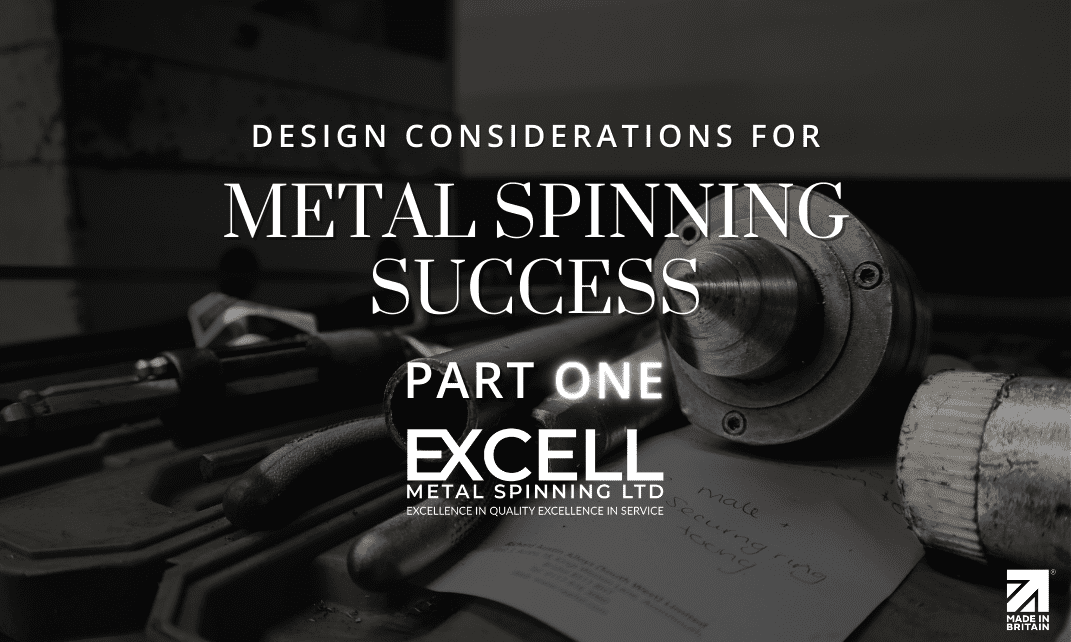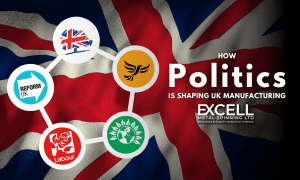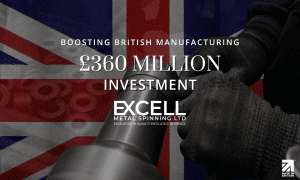Design Considerations for Metal Spinning Success: Part One

Chris
There are many design considerations businesses should considers to get the most out of their metal spinning supply. Factors like material and component depth could be the difference between a low cost and high cost product. Yet, from our experience, there are many businesses out there that fail to recognize some of these important design considerations.
Fortunately, we have helped over 500 unique businesses throughout their design journey. And with this multi-part mini series, we will help you recognize the factors you should consider to get the most out of your budget!
Material selection in Metal Spinning
Material Property
One of the first considerations you must consider is the property of material you are choosing for your components. Factors like ductility, hardness and formability play a significant role throughout the metal spinning process.
A metal that is significantly hard will require additional annealing operations which can significantly increase the time of manufacture. As a result, this leads to increased lead times and ultimately increased costs. On the other hand, a material that is easier to form will result in shorter lead times and lower costs.
Here is a table that will provide a general rule of thumb to follow;
Material Type
The type of metal you opt for will also play a large role in cost efficiency. Different materials behave differently when metal spinning, not to mention, they vary significantly in price when brought in sheet form.
For example, Aluminium tends to be the easiest to from, particularly in a 1050 grade material. It is also a cheap and inexpensive material to purchase in sheet form. On the other hand, Stainless Steel has proven to be much more difficult in comparison, especially in 316 Grade. It too tends to be more expensive in sheet form.
As a rule of thumb, we have provided another table listing materials in order of cost.
Material Thickness
Another important consideration you must take is the thickness of material. Too thin, and the material will be susceptible to splitting and warping. On the other hand, the thicker the material the more difficult it is to form.
Finding a perfect balance will be key for your design. Depending on the material you choose, thicknesses between 0.7mm to 8mm+ can be achieved with metal spinning. This includes conventional hand spinning, CNC metal spinning and hydraulic powered metal spinning processes.
The thickness will not only impact the properties of the metal, but will also dictate the price of the sheet.
Choosing the correct material for your application
Certain materials are ideally suited to certain applications. For example, 316 Grade Stainless steel is great for components in the medical industry or where food safety is concerned. On the other hand, Copper and Brass look amazing for high end components in interior design.
It is worth exploring the material properties to determine the best choice of material for your requirements.
Request a Quote
Surface Finish
At Excell we offer various surface finishes. As standard, all our components are finished with a scotch Brite pad which helps remove scratches and grease. However, there have been many occasions where our customers require an RA finish or even a machine finish. These require more time to complete and subsequently increased unit price.
You should consider what surface finish you require, and whether or not it is needed. This will all vert much determine the unit price of your components.
More Considerations …
In the next Part of this series, we will cover aspects of Geometric Designs you should consider to get the most out of your metal spinning project. From dimensions, tolerances and optional features like beaded edges. These factors play an important role in determining cost and quality for your components.
Have you already taken into account these considerations? Why don’t you head on over to our quotation form and grab a free, no obligation quote from the experts by clicking here
Related Articles

Tackling Common Misconceptions of Metal Spinning
Metal Spinning is fast becoming the go to process for manufactured goods. But did you know there are many misconceptions of the craft?

How Politics is impacting UK Manufacturing
Politics within the UK plays a huge role in shaping industry. Key policies are necessary for driving innovation and more!

Boosting British Manufacturing: A £360 Million Investment
Boosting British Manufacturing: A £360 Million Investment Facebook Twitter LinkedIn WhatsApp Email It’s been declared ahead of the Budget that Chancellor Jeremy Hunt will announce

